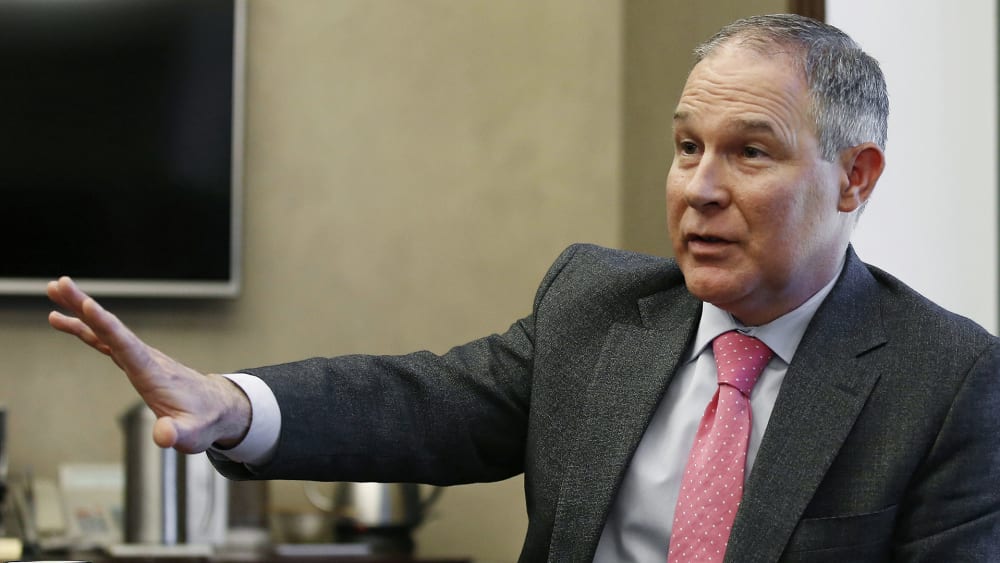It’s fair to say all is not well at the Environmental Protection Agency.
Scott Pruitt, the EPA chief who’s long opposed the EPA’s work, is at the center of multiple controversies. The Government Accountability Office is investigating whether the EPA violated ethics rules in its hiring practices. The EPA’s press office recently went after a reporter as if it were a Republican campaign operation.
Making matters considerably worse, the Washington Post reported last week that the EPA has put a political operative with little environmental policy experience, John Konkus, in charge of “vetting the hundreds of millions of dollars in grants the EPA distributes annually.” The report explained that Konkus “reviews every award the agency gives out, along with every grant solicitation before it is issued.” As part of his reviews, he looks out for “the double C-word” — climate change — and according to the Post, he’s repeatedly “instructed grant officers to eliminate references to the subject in solicitations.”
Christie Todd Whitman, a former Republican governor who ran the EPA in George W. Bush’s first term, wrote a New York Times op-ed last week explaining that all of this helps show “how not to run” the Environmental Protection Agency.
It’s against this backdrop that the administrator of the EPA has discovered a new justification for ignoring the climate crisis.
For scientists, drawing links between warming global temperatures and the ferocity of hurricanes is about as controversial as talking about geology after an earthquake. But in Washington, where science is increasingly political, the fact that oceans and atmosphere are warming and that the heat is propelling storms into superstorms has become as sensitive as talking about gun control in the wake of a mass shooting.












